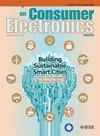消费者医疗物联网中基于基因组的胃腺癌检测的差分私有联邦学习
IF 10.9
2区 计算机科学
Q1 ENGINEERING, ELECTRICAL & ELECTRONIC
引用次数: 0
摘要
胃腺癌(STAD)是全球癌症死亡率的重要组成部分,因此迫切需要精确的诊断方法。传统上,人工智能(AI)方法严重依赖于CT、PET和MRI等成像技术。然而,基因组数据是一种未充分利用的资源,用于识别与stad相关的基因突变。本研究通过分析受STAD影响的基因的氨基酸序列来探索基因组潜力。我们提出了一个框架,集成了用于特征提取的霍夫曼编码(HMC)和基于差分隐私(DP)增强的联邦学习(FL)设置中的差分私有联邦长短期记忆(DPFLSTM)模型。DPFLSTM框架专为以消费者为中心的医疗物联网(IoMT)环境量身定制,可促进各种消费者医疗物联网设备之间的安全协作。我们的DPFLSTM模型在测试中达到了0.93的准确率,在训练中达到了0.99的准确率,在诊断精度和数据隐私方面有了显著的提高。此外,HMC特征集不仅改进了DPFLSTM,而且改进了传统的ML模型(PSVM, RSVM, RF, BNB, DT)。本研究为安全有效的基因组诊断建立了新标准,促进了多机构合作,并将其整合到基于iom的临床决策支持系统(CDSS)中。本文章由计算机程序翻译,如有差异,请以英文原文为准。
Differentially Private Federated Learning for Genomic-Based Stomach Adenocarcinoma Detection in Consumer Medical IoT
Stomach Adenocarcinoma (STAD) significantly contributes to global cancer mortality, underscoring the urgent need for precise diagnostic methods. Traditionally, artificial intelligence (AI) methods have relied heavily on imaging techniques like CT, PET, and MRI. However, genomic data represents an underutilized resource for identifying STAD-related genetic mutations. This study explores genomic potential by analyzing amino acid sequences of genes impacted by STAD. We propose a framework integrating Huffman Encoding (HMC) for feature extraction and a Differentially Private Federated Long Short-Term Memory (DPFLSTM) model within a federated learning (FL) setting enhanced by differential privacy (DP). The DPFLSTM framework is specifically tailored for consumer-centric Internet of Medical Things (IoMT) environments, facilitating secure collaboration among diverse consumer medical IoT devices. Our DPFLSTM model achieves notable accuracies of 0.93 in testing and 0.99 in training, highlighting a significant improvement in diagnostic precision and data privacy. Additionally, the HMC feature set improves not only DPFLSTM but also conventional ML models (PSVM, RSVM, RF, BNB, DT). This research establishes a new standard for secure and effective genomic diagnostics, promoting multi-institutional collaboration and integration into IoMT-based clinical decision support systems (CDSS).
求助全文
通过发布文献求助,成功后即可免费获取论文全文。
去求助
来源期刊
CiteScore
7.70
自引率
9.30%
发文量
59
审稿时长
3.3 months
期刊介绍:
The main focus for the IEEE Transactions on Consumer Electronics is the engineering and research aspects of the theory, design, construction, manufacture or end use of mass market electronics, systems, software and services for consumers.

 求助内容:
求助内容: 应助结果提醒方式:
应助结果提醒方式:


